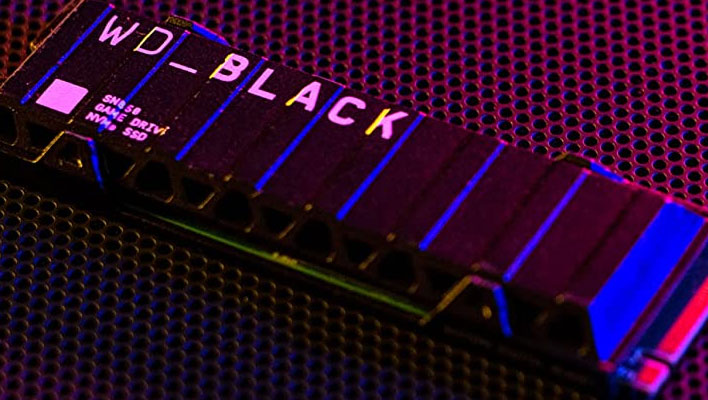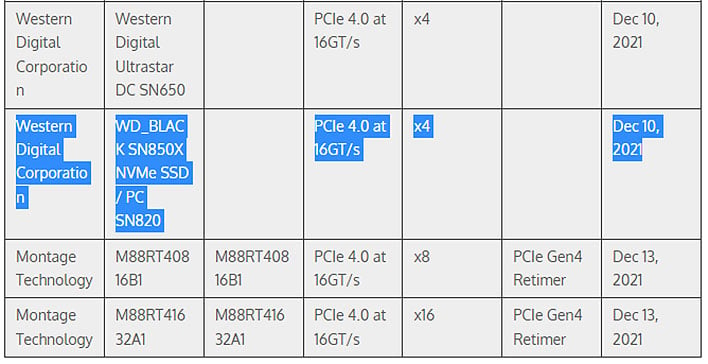Western Digital's Wicked Fast Black SN850 SSD Is About To Get An Upgrade

Western Digital's flagship SN850 solid state drives are some of the fastest on the market, with sequential read speeds bumping into 7,000MB/s territory. There's not a lot of headroom left within the NVMe x4 specification. Be that as it may, WD is apparently prepping an upgrade to its flagship line, as confirmed in a new PCI-SIG listing.
PCI-SIG, or Peripheral Component Interconnect Special Interest Group, is a consortium that oversees PCI Express standards and specifications. The list of members is long and includes Western Digital, as well as big names like AMD, Intel, Microsoft, Seagate, Samsung, and a whole bunch of others—over 800 members in all.
The organization maintains an integrators list of "products that have successfully completed the rigorous testing procedures of the Compliance Workshop." One of the newest additions to the list is a WD Black SN850X drive.

Unfortunately, accompanying details are pretty light. All the listing reveals is that the SN850X is a PCIe 4.0 model with a 4x bus width, which undoubtedly means it is another NVMe SSD. There's no mention of the SN850X's speed capabilities.
That said, there is a bit of headroom in the NVMe x4 spec for WD to wring a bit more sequential read performance. The PCIe 4.0 spec allows for around 2GB/s per lane, which means there is around 8GB/s of bandwidth available for NVMe x4.
No NVMe x4 drives will ever achieve that maximum result because of overhead and other factors. However, there have been some models that have crept past 7,000MB/s. For example, PNY's XLR8 CS3140 is rated to deliver up to 7,500MB/s of sequential read performance, while Adata's XPG Gammix S70 is rated to reach up to 7,400MB/s (we saw reads peak at 7,476.36MB/s in our testing).
Additionally, the SN850 has even more headroom on the write side of the equation—it's rated to reach up to 5,300MB/s, whereas some SSDs are also in the neighborhood of 7,000MB/s for writes.
Interestingly enough, WD employs its own controller for the SN850. While it's possible it could adopt a Phison E18 or Innogrit controller for the SN850X, we suspect it will stick with its own design. Furthermore, we're only guessing that it will be a faster drive. The "X" doesn't necessarily denote faster speeds, though it probably does.
Hopefully we'll find out soon enough what the SN850X listing is all about. CES is right around the corner and would be a good time to announce a new SSD.

